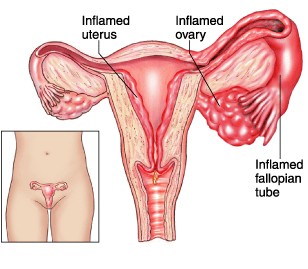Hepatitis C is a viral infection that affects nearly 30,000 new individuals each year. There are approximately 2,700,000 Americans who are chronically infected with hepatitis C.
What are the symptoms of Hepatitis C?
The majority of people will not exhibit any symptoms when first infected. Symptoms usually take years to appear.
Symptoms of hepatitis C include:
- Jaundice (yellow skin or eyes)
- Fatigue
- Dark Urine
- Abdominal pain
- Nausea
- Loss of appetite
Can having hepatitis C lead to other problems?
This disease leads to chronic liver disease in 70% of chronically infected individuals. Chronic liver disease may lead to liver failure, liver cancer, and death. This is the number one reason for liver transplants in the United States.
How is it transmitted?
This disease is transmitted by the microscopic exchange of infected blood. The most common transmission occurs in I.V. drug use.
Hepatitis C may be transmitted by any of the following:
- Sexual activity which includes anal or vaginal intercourse
- Intravenous (IV) drug use
- Although rare, mother to baby during birth
- Exposure to infected blood
How is it diagnosed?
Hepatitis C may be diagnosed by your healthcare provider through a blood test. The Association recommends testing for anyone that has injected illegal drugs, received blood products before 1992, or had sex with someone who has used IV drugs.
What is the treatment?
There are medications that eliminate the virus in approximately 40% of cases. For others that do not respond to these medications, there is no cure.
Can hepatitis C be prevented?
This disease may be prevented by refraining from sexual contact of any kind or being in a long-term monogamous relationship such as marriage. It may also be avoided by not using illegal I.V. drugs. There is no vaccine for this disease.
Want to Know More?
Compiled using information from the following sources:
Centers for Disease Control and Prevention, https://www.cdc.gov
Sexually Transmitted Diseases in Women.Faro, Sebastian, Ch. 14.[:es]La hepatitis C es una infección viral que afecta casi 30,000 nuevas personas cada año. Hay aproximadamente 2,700,000 Estado Unidenses que están infectadas crónicamente con hepatitis C.
¿Cuáles son los síntomas de la hepatitis C?
La mayoría de las personas no presentan ningún síntoma cuando primero infectadas. Los síntomas suelen tardar años en aparecer.
Los síntomas de la hepatitis C incluyen:
- Ictericia (piel u ojos amarillos)
- Fatiga
- Orina oscura
- Dolor abdominal
- Náuseas
- Pérdida de apetito
Puede la hepatitis C producir otros problemas?
Esta enfermedad conduce a la enfermedad hepática crónica en 70% de las personas infectadas crónicamente. Enfermedad hepática crónica puede conducir a insuficiencia hepática, cáncer de hígado y la muerte. Esta es la razón número uno para los trasplantes de hígado en los Estados Unidos.
How is hepatitis C transmitted?
Esta enfermedad se transmite por intercambio microscópico de sangre infectada. La transmisión más común ocurre en V.I. uso de drogas.
Hepatitis C puede ser transmitida por cualquiera de las siguientes:
- La actividad sexual que incluye el coito anal o vaginal
- Intravenosa (IV) el consumo de drogas
- Aunque es raro, la madre al bebé durante el parto
- La exposición a sangre infectada
¿Cómo se diagnostica la hepatitis C?
La hepatitis C puede ser diagnosticada por su proveedor de cuidado de la salud a través de un análisis de sangre. La Asociación recomienda la prueba para cualquier persona que se ha inyectado drogas ilegales, recibido productos sanguíneos antes de 1992, o ha tenido relaciones sexuales con alguien que ha utilizado drogas intravenosas.
¿Cuál es el tratamiento para la hepatitis C?
Hay medicamentos que eliminan el virus en aproximadamente el 40% de los casos. Para otros que no responden a estos medicamentos, no existe una cura
¿Se puede prevenir la hepatitis C?
Esta enfermedad puede ser prevenida por abstenerse de contacto sexual de cualquier tipo o estar en una relación monógama a largo plazo, tales como el matrimonio. También se puede evitar al no utilizar ilegal IV fármacos. No existe una vacuna para esta enfermedad.
Compilado utilizando la información de las siguientes fuentes:
Centers for Disease Control and Prevention, https://www.cdc.gov
Sexually Transmitted Diseases in Women.Faro, Sebastian, Ch. 14.






